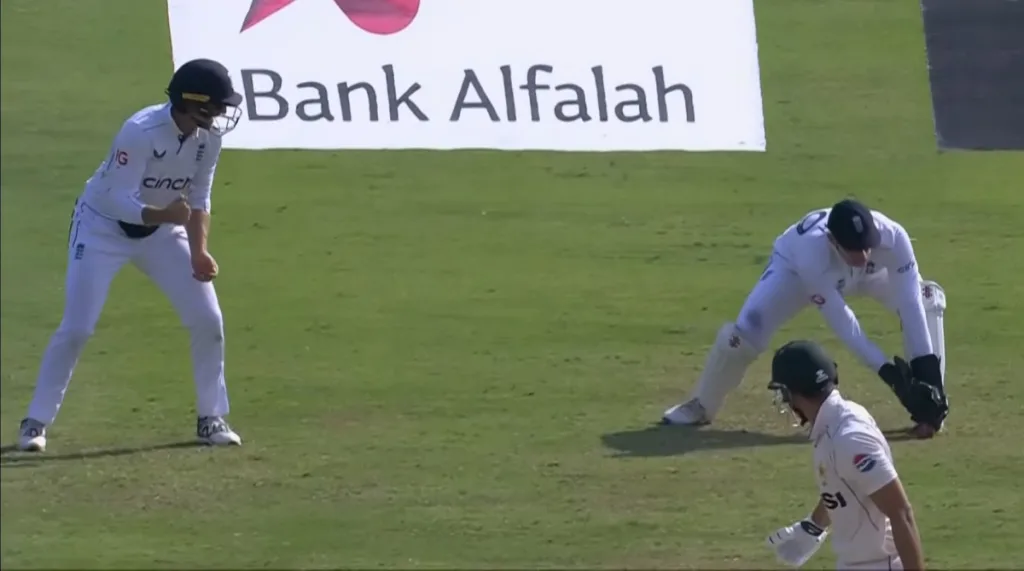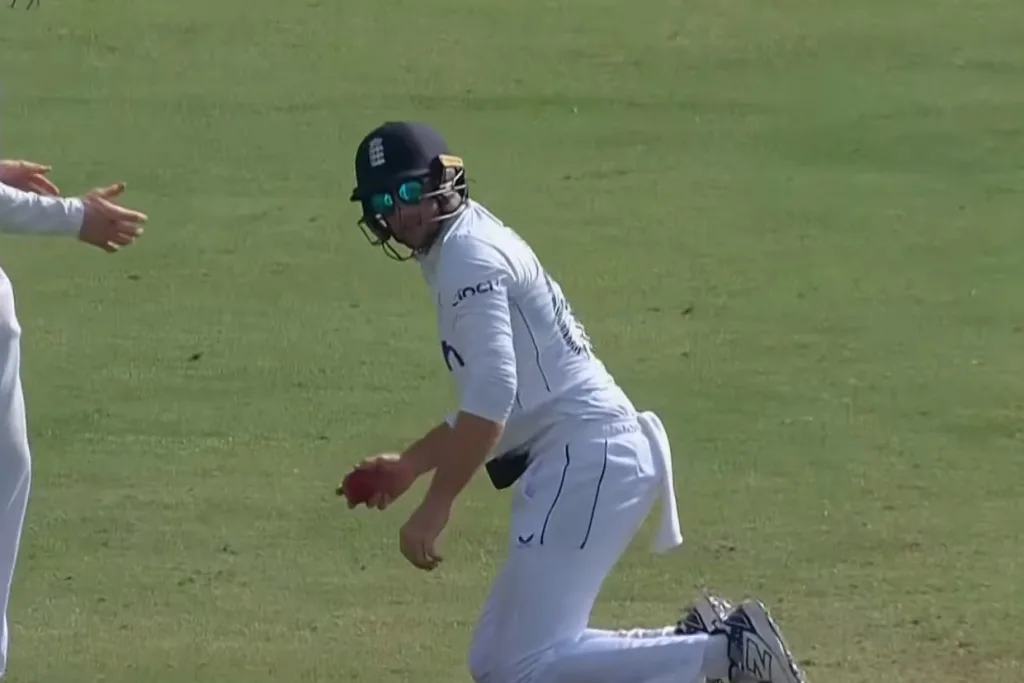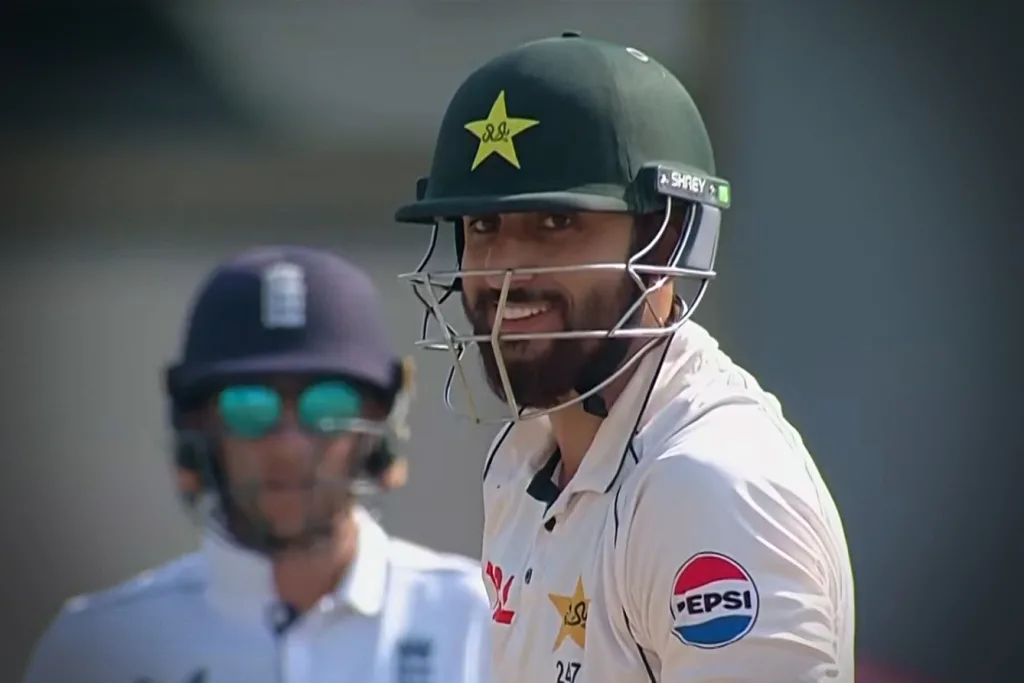Fielding sides loathe few things more than a really, really good number seven batter. So why is it so rare that a player is specifically picked to do the job?
“Initially, I used to complain,” Pakistan’s Salman Ali Agha told Sky Sports this week about coming in at number seven. “But it’s just something now that I have to accept and I have to do well.”
Salman’s latest innings was actually a bit of an oddity, in that he was dropped twice in three balls when he was still in single figures.
The first was a sufficiently easy chance to Jamie Smith that Joe Root was already clenching his fist and roaring “Yeah!” even as the wicketkeeper was mashing the ball into the turf.

Root’s face then swiftly morphed to a mix of horror and astonishment when he saw what had happened. Even as a bystander, he wouldn’t have wanted to catch bowler Brydon Carse’s eye.
Carse was busy reacting like this.

It couldn’t get much more awkward than that. Until, two balls later – with emotions and stakes raised – it did.
This time Root himself dropped it.
In an astonishing act of bravery, he then looked vaguely in Carse’s direction.

It was surely only the sense of protection borne of helmet and sunglasses that emboldened him to do this.
Salman smiled and then set about putting Pakistan out of England’s reach with 63. He was the first batter to pass 40 since Ben Duckett on day two and the last to do so in the match.
This, apparently, is what Salman Ali Agha does. And he does it from number seven in the batting order.
Salman Ali Agha, down the order
Salman averages 44.16 from five innings at number six, but 66.66 from 19 innings at number seven. It’s an impressive record that suggests he should be given more responsibility. But if there’s a case for moving him, it’s arguably downwards – he averages 117.50 from seven innings batting at number eight.
Number seven is a funny spot in the batting order. Assuming a team picks at least four specialist bowlers, it is likely to house the last of the proper batters – only it’s very, very rare that the player who comes out in that position is someone who was primarily picked to make runs.
Salman is not unreasonably listed as an all-rounder a lot of the time, but his bowling’s only really an extra. So far he’s averaging one wicket a Test match at an average of 58.56.
Bowling overs does not a bowler make. Salman Ali Agha is a batter – a number seven batter.

The closest equivalent we can think of is early era Mahmudullah – another player whose batting position did more to earn him the ‘all-rounder’ tag than his bowling. For a while there, Mahmudullah was Bangladesh’s most reliable batter, but he still only came in at number eight.
Or what about Jos Buttler? He played 10 Tests as a number seven batter when he wasn’t keeping wicket.
> Five Test wicketkeepers who quite often didn’t actually do any wicketkeeping
And that’s the nub of it really. On those occasions, England’s chosen wicketkeeper, Jonny Bairstow, was an even better batter and so it made sense for him to bat higher up the order. Similarly, Bangladesh had use of Shakib al Hasan and Mushfiqur Rahim, who as well as warranting selection as bowler and wicketkeeper respectively, also ranked among the nation’s six best batters.
Mahmudullah was a displaced number six really. With current Pakistan wicketkeeper Mohammad Rizwan more than worthy of a top six spot, so too is Salman Ali Agha.
It feels weird and wasteful, but there’s really no difference. You’ve got the same number of batters, the same number of bowlers, the balance of the side is the same and the number seven is expected to make runs either way.
All the same… let’s see how long it lasts.




Is Fieldign the name of the next mystery spinner to come out of Pakistan?
(Sorry.)
Interestingly, quite often the first typo is among the last bits typed in.
There’s only one thing more annoying than making a typo, which is someone smugly pointing out your typo.
Sides are often said to ‘throw the bar’ in an effort to score quickly, but it seems today Ben Stokes tried it literally… Didn’t work, he got out, but now we know what happens when someone tries it. Yeah he might say it was an accident, but I like to think he was just another eat of moving the science/art of Test cricket
forward.
bat, obviously, not bar. They already tried the latter in the bad old days
It was a classic of the genre. Not sure we’ve ever seen one go further.
Three cheers for England playing three spinners.
You should always play three spinners.